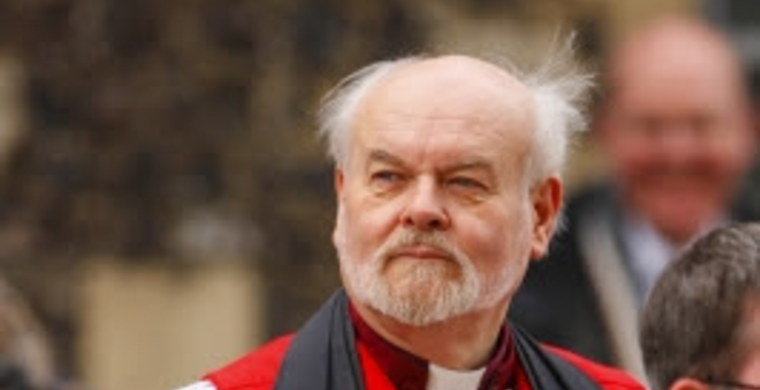Bishop of London: The only division that matters is whether a church is dead or alive
By Florence Taylor
http://www.christiantoday.com/
October 1, 2015
The only division that matters in the Church is whether a church is dead or alive, Bishop of London Richard Chartres said yesterday.
Chartres was delivering a Lambeth lecture entitled 'London's Burning' focussing on the growth of the Church in the Diocese of London.
He said the Church must be "vision-led, not problem-led" in the "post-denominational phase" we are now entering, seeking "street-level cooperation" between the Anglican Church and the wider Church body.
The key to growth, according to Chartres, is whether a church is dead or alive, not whether it is Anglican or not.
He said we must refuse "to see the many divisions in Church life, between High Church and Low Church between Catholic and Protestant tradition. There is only one division that truly matters in a diocese like ours, and that is the division between dead church and live church.
"And that can embrace almost any expression of Christian faith."
Strong ecclesial identity is something of history, according to Chartres. Rather, "we are in a post denominational phase".
"Very few of the hundreds of thousands of students studying in the capital arrived with any clear ecclesial identity. They are looking for churches and congregations of varied and contrasting styles that are living and not dead," he said.
This, according to the Bishop, has led to opportunity for collaboration between the Anglican Church and ecumenical bodies.
"In particular the old opposition between established Church and dissenters has largely faded and the possibility of street level cooperation with allies such as The Redeemed Church of God run by Pastor Agu (Irukwu) will vastly increase."
Chartres said he sees progression through a marriage of tradition with that which is new. "I have always sought to balance active support for new ways of doing things with an emphatic advocacy of the tradition of the Church expressed in the Book of Common Prayer and authorised version of the Bible."
He said the Church must seek to be guided by tradition, rather than be engulfed by traditionalism, because "tradition is the Spirit-filled continuity of the Church's life through which the truth is communicated from generation to generation in fresh ways to stay the same."
Thus, he said that in order to discern which new developments to bless and which to discourage "demands a healthy, but not uncritical, love for how the Church of England has striven to communicate the gospel from generation to generation."
The Bishop described himself as a "midwife of change," having entered the Church at the time described by the poet David Jones as the "saggy end of the chapters close" of the Church of England's story in London, weighed down by bureaucracy, synods and Archdeacons. He pointed to the "functional atheism in parts of the Church" and the fact that "woodenness" was more of a challenge than "wickedness".
The Archbishop of Canterbury Justin Welby described London as having "practically caught alight with the fire of the Spirit of God" under Chartres' leadership.
Asked about what the Diocese of London would look like in 2050, Chartres said it is up to this generation's choices. "If we are determinedly service-led and outwork looking rather than introspective, there is every hope that by 2050 London will be a place where people come from around the world to learn about the way of Jesus Christ. It is up to us."
The Bishop also spoke of a new initiative, Capital Vision 2020, which seeks to equip and commission 100,000 'ambassadors for Christ' by 2020, significantly "not only for our own needs but for the whole of the wider Church."
A large part of this vision, and the vision for church growth within London, is church planting, which the Bishop noted was not always led by charismatic evangelicals, but rather was an Anglo-Catholic phenomenon in the early 19th Century.














